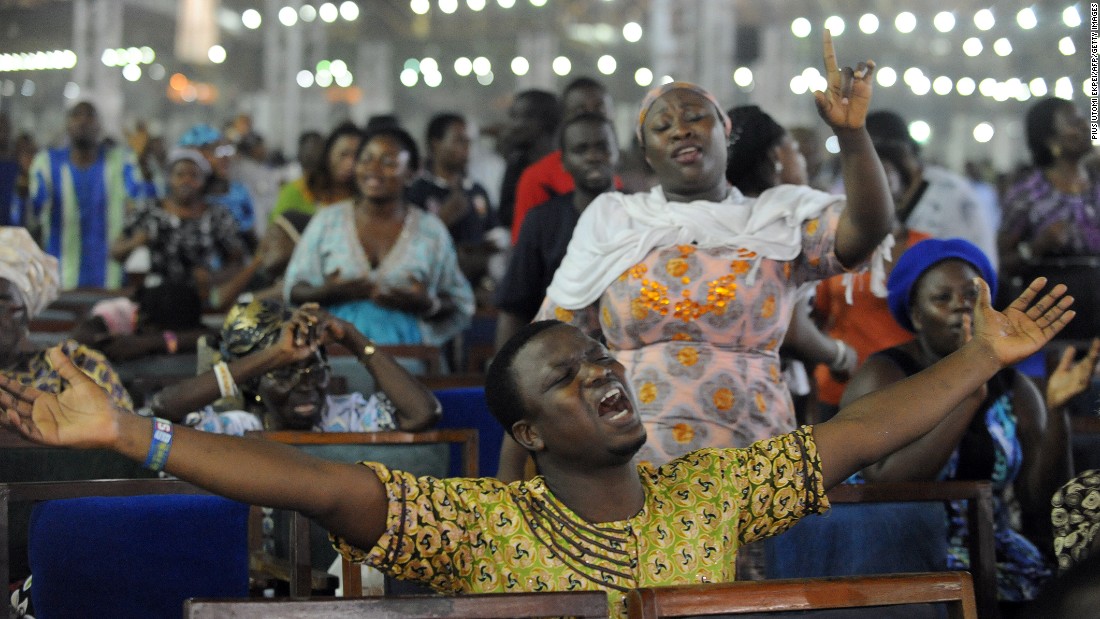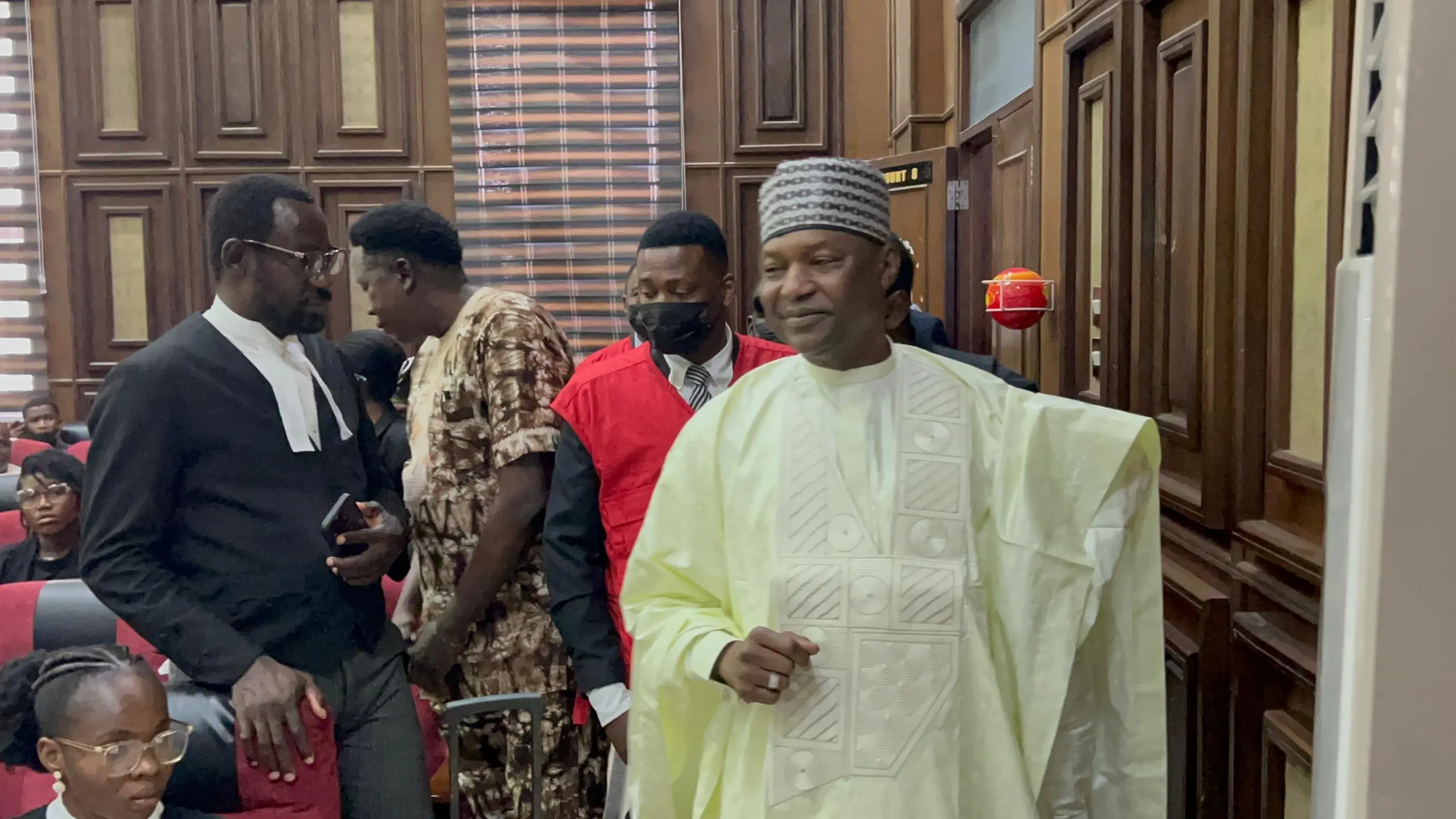General
Cinemas, Gyms, Midweek Religious Services Reopen in Lagos

By Dipo Olowookere
Lagos State Governor, Mr Babajide Sanwo-Olu, has approved the reopening of cinemas and gyms in the state after they were shut down about six months ago.
The facilities were closed as part of efforts to contain the spread of coronavirus in the metropolis and the country at large.
During his regular media briefing on Saturday, Mr Sanwo-Olu noted that cinemas and gyms would for now be allowed to operate with a maximum of 33 per cent occupancy, stressing that there must be a minimum of two empty seats between occupied seats in the cinemas.
He emphasised that operators of gyms in the state must constantly disinfect their machines and equipment throughout the day, warning that failure to adhere to this instruction would have consequences.
However, he said night-clubs, bars, event centres, spas and public parks will remain closed for now, noting that the state government would take definite decisions on the reopening next month.
The Governor further announced that mosques in the state are permitted to observe daily prayers, while churches can start mid-week services.
“As regards our places of worship, we are now also permitting the mosques to resume their five times daily prayers; and in the case of churches, they are now also permitted to resume their mid-week services,” he said.
However, Mr Sanwo-Olu warned that, “We must not forget that the Coronavirus pandemic is still very much with us, and we must, therefore, strive to prioritise the safety of all our children, teachers, parents, and the entire society.”
On the reopening of schools, he said permission has been granted for the re-opening of basic and secondary schools, stressing that only pupils in Junior Secondary School Three (JSS 3) and Senior Secondary School Two (SSS 2) are allowed to resume for physical classes in public schools.
He explained that public schools’ resumption would allow the JSS 3 pupils to revise and prepare for Basic Education Certificate Examination (BECE) slated for October 12, 2020, while students in SSS 2 will use the period to prepare for their transitional exams to SSS 3.
Unlike the resumption schedule for the public schools, the Governor permitted all levels of class in private schools to resume, but with strong advice to private school owners to consider implementing a staggered daily resumption schedule and classes on alternate days during the week.
But he emphasised that all pre-primary school classes, including nursery, day-care centres and kindergarten, in both public and private schools are not permitted to open.
“It has become necessary to issue clarifications regarding the resumption of schools, in order to clear any confusion that may have arisen since the resumption date was announced.
“Public Schools will adopt a phased protocol for the resumption of physical classes. Students in JSS 3 and SSS 2 in public schools in Lagos are to resume physical classes from September 21.
“In the same vein, all private primary and secondary schools are permitted to resume from September 21. We have strongly advised school owners and managers to put safety first and open in phases similar to the announced schedule for public schools.
“School owners and managers are advised to seriously consider implementing a staggered daily resumption schedule, classes on alternate days during the week, and utilization of distance learning methods as a complement to physical classes.
“All pre-primary – nursery, day-care and kindergarten – classes and schools in both public and private schools must remain closed,” the Governor announced yesterday.
The Governor said all re-opened schools must comply with safety protocols and hygiene guidelines as instructed by the State Government through the Office of Education Quality Assurance (OEQA). He said the department would monitor and evaluate Schools’ preparedness.
“For all other public school classes in primary school and JSS 1, JSS 2, and SSS 1, announcements for resumption will be made as soon as the State Government is satisfied that all necessary resumption protocols have been put in place.
“In the meantime, these yet-to-resume classes in public schools are expected to continue their lessons on our various distance learning platforms (online, radio, television and WhatsApp) pending the announcement of dates for physical resumption,” he said.
From next week, Sanwo-Olu said all primary and secondary schools in the state that have more than two-storey structures will be subjected to integrity test to ensure the safety of pupils.
The Governor spoke against the backdrop of the Saturday collapse of Excel Secondary School, a private school in Ejigbo area of the state.
The school, Mr Sanwo-Olu observed, flouted the state’s structural regulations, resulting in its collapse and directed the complete demolition of the failed structure, while directing the Ministry of Physical Planning and Urban Development to embark on integrity test on all schools’ structures.
General
NISO Attributes Electricity Woes to Inadequate Gas Supply

By Adedapo Adesanya
The Nigerian Independent System Operator (NISO) has attributed the poor power supply facing a considerable number of Nigerians to inadequate gas supply to thermal power plants.
Business Post reports that epileptic power supply has plagued consumers in Lagos, Oyo, Abuja, and Osun, among others, this month, leading to worries. Also, some businesses have recorded losses due to the epileptic power supply in their areas.
In a statement posted on its X handle, NISO disclosed that average available generation on the national grid currently stands at about 4,300 megawatts (MW), with the low output primarily attributed to gas supply constraints.
The system operator noted that thermal power plants, which account for the dominant share of Nigeria’s electricity generation mix, require an estimated 1,629.75 million standard cubic feet (MMSCF) of gas per day to operate at optimal capacity. However, as of February 23, 2026, actual gas supply to the plants was approximately 692.00 MMSCF per day.
The available supply represents less than 43 per cent of the daily gas requirement, resulting in constrained generation output and reduced electricity allocation to Distribution Companies (DisCos).
NISO, which independently manages the nation’s electricity grid, explained that any disruption or limitation in gas supply directly affects available generation capacity and overall grid output, given the heavy reliance on thermal plants.
It added that when total system generation drops significantly, the operator is compelled to implement load shedding across the network while dispatching available energy in line with allocation percentages approved under the Multi-Year Tariff Order (MYTO) framework of the Nigerian Electricity Regulatory Commission (NERC), to maintain grid stability and prevent system disturbances.
While expressing regret over the inconvenience to electricity consumers and market participants, NISO said it is working closely with relevant stakeholders to restore full energy allocation once gas supply improves and generation capacity returns to normal levels.
General
EFCC Re-Arraigns ex-AGF Malami, Wife, Son Over Alleged Money Laundering

By Adedapo Adesanya
The Economic and Financial Crimes Commission (EFCC) has re-arraigned former Attorney-General of the Federation (AGF), Mr Abubakar Malami (SAN), his wife, Mrs Asabe Bashir, and son, Mr Abdulaziz Malami, on money laundering charges.
They were brought before Justice Joyce Abdulmalik of the Federal High Court in Abuja, following the re-assignment of the case to the new trial judge.
Upon resumed hearing, EFCC’s lawyer, Mr Jibrin Okutepa (SAN), informed the court that the matter was scheduled for defendants’ re-arraignment.
“The matter is coming before your lordship this morning for the very first time. I will be applying for the plea of the defendants to be taken,” he said.
Mr Okutepa equally applied that the sums listed in Counts 11 and 12 be corrected to read N325 million instead of N325 billion for Count 11, and N120 million instead of N120 billion for Count 12.
When it was not opposed by the defence lawyer, Mr Joseph Daudu (SAN), Justice Abdulmalik granted the oral application by Mr Okutepa.
The defendants, however, pleaded not guilty to the 16 counts preferred against them by the anti-graft agency bordering on money laundering.
Justice Obiora Egwuatu had, on February 12, withdrawn from the case shortly after the civil case filed by the EFCC was brought to him.
The case was formerly before Justice Emeka Nwite, who sat as a vacation judge during the Christmas/New Year break.
After the vacation period, the CJ reassigned the cases to Justice Egwuatu, who had now recused himself, before it was reassigned to Justice Abdulmalik.
The former AGF, his wife, and son were earlier arraigned before Justice Nwite on December 30, 2025.
While Malami and his son were remanded at Kuje Correctional Centre, Asabe was remanded at Suleja Correctional Centre before they were admitted to N500 million bail each, on January 7, with two sureties each in the like sum.
General
INEC Shifts 2027 Presidential, N’Assembly Elections to January 16

By Adedapo Adesanya
Nigeria will hold next year’s presidential and National Assembly elections a month earlier than planned, after the Independent National Electoral Commission (INEC) revised the polling schedule.
The elections will be held on January 16, instead of the previously announced date of February 20, INEC said in an X post, signed by Mr Mohammed Kudu Haruna, National Commissioner and Chairman, Information and Voter Education Committee.
There were also changes to the Governorship and State Houses of Assembly elections initially fixed for Saturday, March 6 2027, in line with the Electoral Act, 2022, have now been moved to Saturday, February 6, 2027.
The electoral commission said the changes were caused by the enactment of the Electoral Act, 2026 and the repeal of the Electoral Act, 2022, which introduced adjustments to statutory timelines governing pre-election and electoral activities.
“The Commission reviewed and realigned the schedule to ensure compliance with the new legal framework,” it said.
INEC said party primaries (including resolution of disputes) will commence on April 23, 2026 and end on May 30, 2026, after which Presidential and National Assembly campaigns will begin on August 19, 2026, while Governorship and State Houses of Assembly campaigns will begin on September 9, 2026.
It noted that campaigns will end 24 hours before Election Day, and political parties have been advised to strictly adhere to the timelines.
INEC also stated it will enforce compliance with the law.
The electoral body also rescheduled the Osun Governorship election which was earlier scheduled for Saturday, August 8 2026, by a week to Saturday, August 15, 2026.
INEC noted that some activities regarding the Ekiti and Osun governorship elections have already been conducted, and the remaining activities will be implemented in accordance with the Electoral Act, 2026.
Speaking at a news briefing in Abuja two weeks ago, the chairman of INEC, Mr Joash Amupitan, expressed the readiness of the commission to conduct the polls next year.
The timetable issued by the organisation for the polls at the time came when the federal parliament had yet to transmit the amended electoral bill to President Bola Tinubu for assent.
Later that week, the Senate passed the electoral bill, reducing the notice of elections from 360 days to 180 days, while the transmission of results was mandated with a proviso.
-

 Feature/OPED6 years ago
Feature/OPED6 years agoDavos was Different this year
-
Travel/Tourism10 years ago
Lagos Seals Western Lodge Hotel In Ikorodu
-

 Showbiz3 years ago
Showbiz3 years agoEstranged Lover Releases Videos of Empress Njamah Bathing
-

 Banking8 years ago
Banking8 years agoSort Codes of GTBank Branches in Nigeria
-

 Economy3 years ago
Economy3 years agoSubsidy Removal: CNG at N130 Per Litre Cheaper Than Petrol—IPMAN
-

 Banking3 years ago
Banking3 years agoSort Codes of UBA Branches in Nigeria
-

 Banking3 years ago
Banking3 years agoFirst Bank Announces Planned Downtime
-

 Sports3 years ago
Sports3 years agoHighest Paid Nigerian Footballer – How Much Do Nigerian Footballers Earn












1 Comment